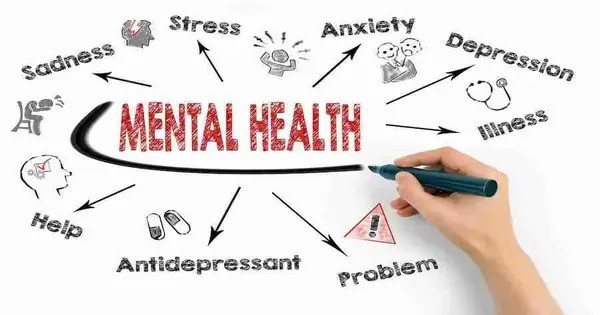A new study has shed light on why some children and adolescents develop mental health disorders like PTSD, anxiety, or depression after experiencing a traumatic event. While most children recover well after a traumatic event, some go on to develop mental health disorders that may stay with them for months, years, or even into adulthood.
The University of East Anglia research found that cognitive psychological factors — such as how children remember the event and how they perceive themselves afterward — are the strongest predictors of poor mental health outcomes following a trauma.
Co-author Katie Lofthouse, of UEA’s Norwich Medical School, said: “Some children and adolescents who have experienced traumatic events like road traffic collisions or violence may develop post-traumatic stress disorder (PTSD), as well as other conditions such as anxiety and depression.
“However, we do not understand why children might develop one set of difficulties and not another. We found that cognitive psychological factors — like features of their memories for the trauma and how they see themselves after the trauma — were the most powerful predictors of all forms of poor mental health. Aspects of how severe the trauma was, or a child’s age or sex were much less important.”
The research team worked with 260 children aged between eight and 17 who had attended a hospital emergency department following a one-off traumatic incident. These included events such as car crashes, assaults, dog attacks and other medical emergencies.
These young people were assessed at two and nine weeks post-trauma using self-report questionnaires completed by the child, telephone interviews with parents, and hospital data, which was then used to develop four predictive models of risk factors for PTSD, Complex PTSD (CPTSD), depression, and Generalised Anxiety Disorder (GAD).
Some children and adolescents who have experienced traumatic events like road traffic collisions or violence may develop post-traumatic stress disorder (PTSD), as well as other conditions such as anxiety and depression.
Katie Lofthouse
At nine weeks post-trauma, 64pc showed no signs of any disorder, 23.5pc met the criteria for PTSD, and 5.2pc for CPTSD. A total of 23.9pc and 10.7pc had developed clinically significant symptoms of depression and GAD, respectively. When it came to predicting who would develop these mental health issues, a model based on how people think (a cognitive model) was the most accurate.
A model that looked at social and psychological factors was weaker in predicting later mental health symptoms. Interestingly, a child’s personal perceptions of how severe the event was had a stronger impact on their mental health than objective, measurable facts about the severity of the event.
Miss Lofthouse added: “These findings highlight risk factors for the development of mental health disorders following trauma exposure in youth. Negative thoughts about the traumatic event were a major predictor of all types of mental health problems studied. This supports the use of treatments like trauma-focused cognitive behavioural therapy, which aims to address these negative thoughts.
“Our research also showed that poor memory of the trauma specifically predicted PTSD, suggesting that certain symptoms may help predict different mental health outcomes. Previous research from UEA found that children are more likely to suffer Post Traumatic Stress Disorder (PTSD) if they think their reaction to traumatic events is not ‘normal’.
This latest research goes into further depth, looking at not just PTSD, but also other mental health outcomes such as complex PTSD, depression, and anxiety. Complex PTSD includes all the symptoms of PTSD but also has some additional, more severe emotional and psychological impacts. This can include problems managing extreme emotions, feelings of deep shame, guilt, or worthlessness and difficulty trusting others, feeling detached or isolated, or experiencing ongoing conflicts in relationships.
There have been few studies that compare how well different models can predict mental health outcomes in people who have experienced trauma, and none of these studies have focused on young people. With the recent introduction of Complex PTSD (CPTSD) as a diagnosis, the research team wanted to see if it was possible to predict mental health issues in youth who have been through trauma.
The research team also considered factors including other life stressors and whether the child was experiencing on-going pain. The researchers say the results back up the idea that how a person thinks about their trauma plays a big role in PTSD, but they also show that this model is not disorder-specific and applies to Complex PTSD, depression, and anxiety. Further research could look more closely at thoughts tied to specific disorders or focus on general distress after trauma.
















